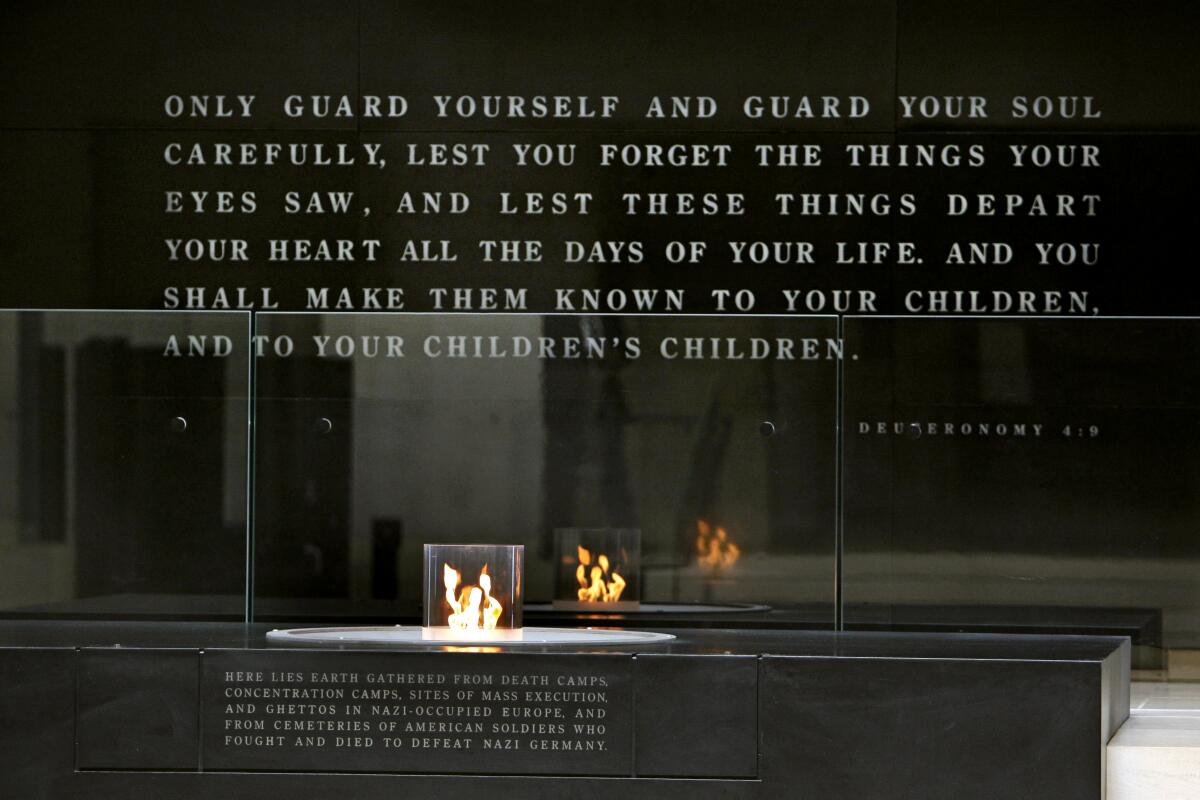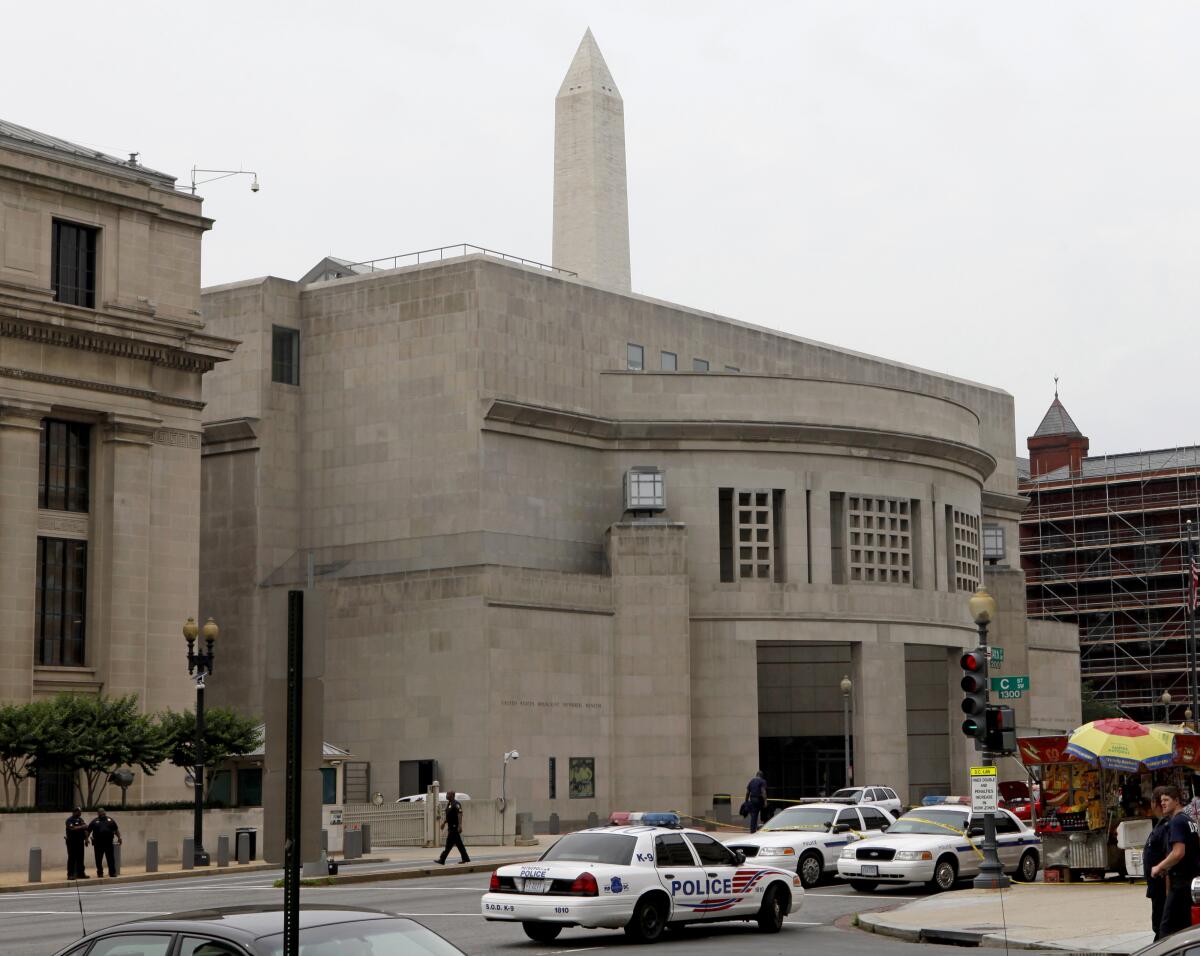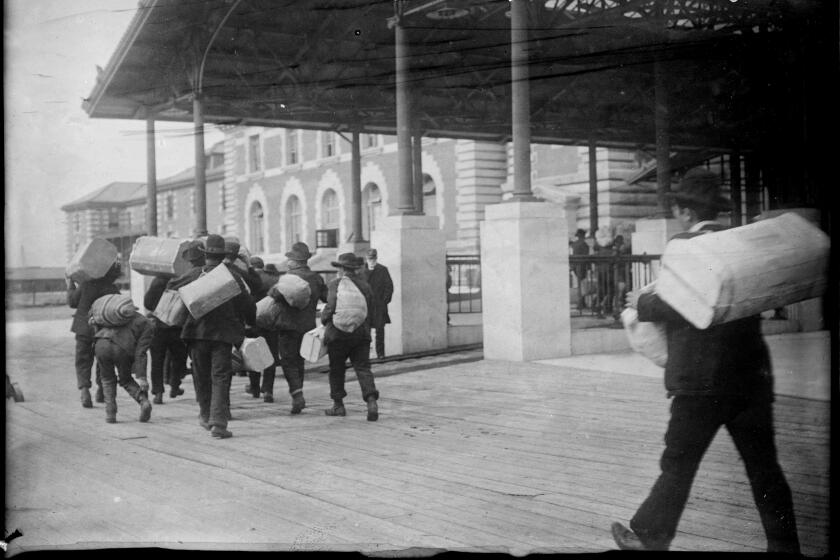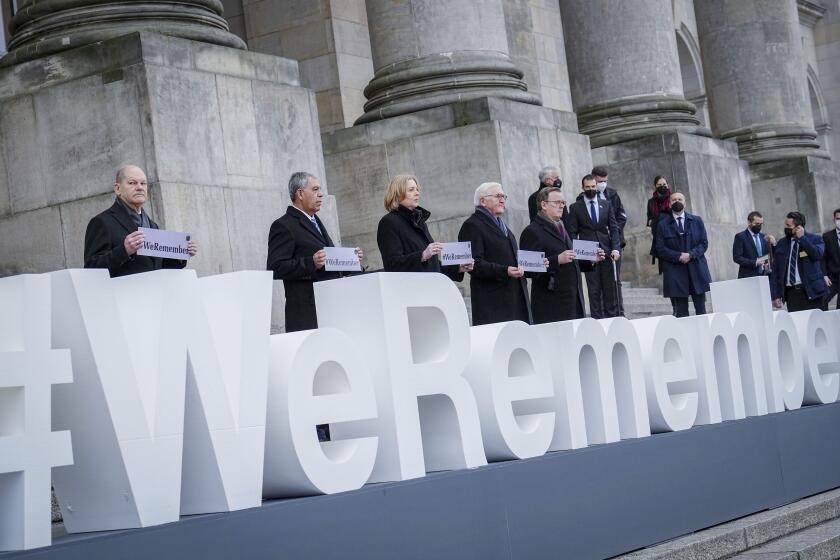Op-Ed: How I learned to embrace my Black and Jewish heritage

- Share via
In the small town in New Jersey where I grew up, the Jewish population was almost nonexistent. I was always embarrassed to admit I was half Jewish. It was bad enough I was one of the only Black kids in our school, but to reveal being half Jewish meant I was going to be known as “the Black Jew” — a heritage of two of the most oppressed peoples in history. The ridicule would never end.
So, I never owned or affiliated myself with Judaism. I never read the Torah or had a bar mitzvah or circled “Jewish” on any form.
But through a string of personal encounters with family members and with history, I eventually came to think that maybe my Black identity was connected to my Jewish identity, as I found common themes between our peoples’ experiences. What seems to separate us — our skin, our culture, our history — is really what binds the Black and Jewish people. We have defied persecution and slavery and genocide and systemic and institutional racism and antisemitism, but we’re not defined by just our struggles. Our resolve, our irrefutable drive for freedom and equality define us. As a kid, I didn’t understand any of that.
Pretending the U.S. was on the sidelines won’t make us a stronger nation, but taking responsibility will.
After my paternal grandfather died when I was 9, my Jewish father, whom I rarely saw, thought it would be a good idea for me to meet his mother. He and I drove to Long Island in New York a few times to visit her. I remember looking at her strangely, trying to find myself. I scanned her eyes, her lips, her skin, looking for anything I could attach myself to. She fed me a bowl of matzo ball soup and watched me eat it. I remember feeling foreign in her little world, but also like I had finally found a missing piece of something.
When I was 16, my high school history class took a trip to the U.S. Holocaust Memorial Museum in Washington, D.C. My classmates and I stared at a pile of shoes in an exhibit — those ghosts, still somewhere in the soles. There was no idiom in any language to express that ineffable history, what it meant to erase people, leaving only their rags, their bowls, their brushes, their spoons. Their bodies were summarized in the captions.

In a seminar room, a pair of elderly Holocaust survivors, so delicate, like tiny birds, recounted their experiences. They reminded me of my grandmother. Their presentation was unlike anything I or my classmates had ever experienced. It was as if being thrown into someone else’s memory, a projection of a dream, taking on its sadness, its loss, its kind of death. They talked of when they were children — before, during and after the Holocaust.
A historian invited those who had Jewish relatives to search the museum’s Database of Holocaust Survivor and Victim Names. On some level, I was excited to search my name as if looking for validation, for acceptance in this place, as if to say: I am family to this too. On the kiosk screen, I typed my last name, “Loeb,” and was flooded with results. The historian said that if our Jewish relatives came from Europe there was a greater chance one or more of them were Holocaust victims or survivors.
My generation is the last that will hear about the Holocaust from survivors like my grandfather. Without their accounts, will the horror fade away?
So, outside the museum, I called my grandmother, my father’s mother, thinking that she could pinpoint my search — a name, a birthdate, a birthplace, something. I didn’t remember the last time we’d spoken, for she was a stranger, like those survivors. But what if? What if she had been waiting all this time for me to experience this, the Holocaust museum, just to tell me about our family tree — my lineage, my history, our origins, whatever she knew. But when the phone trilled and she finally answered and her voice sounded far off, she didn’t recognize me — not even my name. I felt rejected because she knew me only as her other grandson — not the white grandsons, my father’s other sons, whom she often saw, but me, the Black one, whom she sometimes remembered but often forgot.
In the decades since visiting the Holocaust museum, since the passing of both my paternal grandparents, since mending the relationship with my father, I have continued to build my own links to my Jewish roots. I’ve studied the Hebrew Bible, learned about the genealogy of the ancient Hebrews, signed my best friend’s Jewish marriage contract, and now, hyphenate myself as Black-Jewish American. All of this helped me correlate being Jewish with the other side of my identity, showing me how much our stories overlap.
I have also realized that as a child of mixed heritage, I didn’t have to rely on others to provide connections to my ancestry. I am as much Jewish as I am Black. Being the Black Jew, a label I’d feared in school, was exactly who I was, who I am and who I want to be.
Davon Loeb is a writer based in New Jersey. This essay was adapted from his forthcoming memoir, “The In-Betweens.” @loebdavon
More to Read
A cure for the common opinion
Get thought-provoking perspectives with our weekly newsletter.
You may occasionally receive promotional content from the Los Angeles Times.












